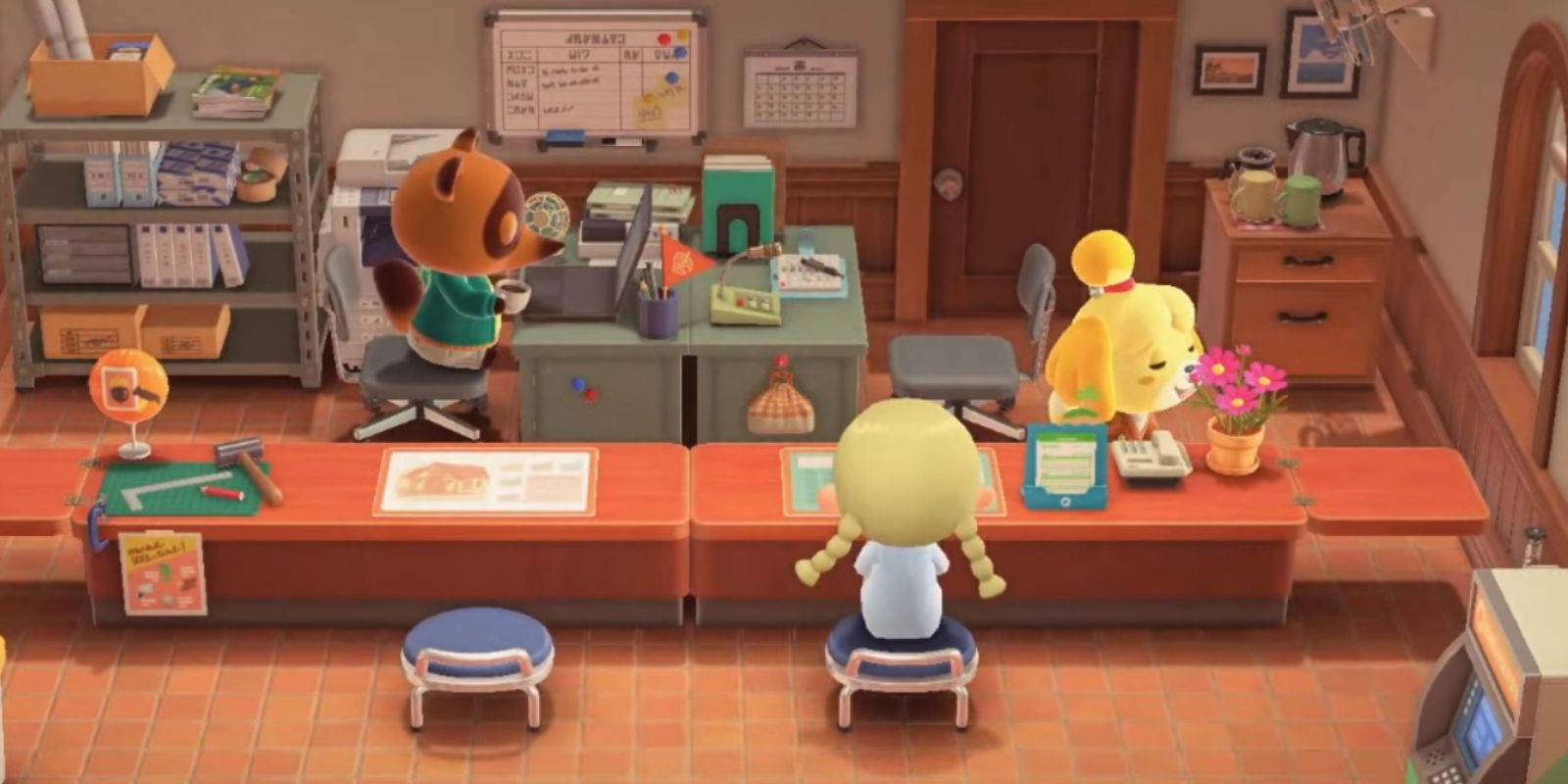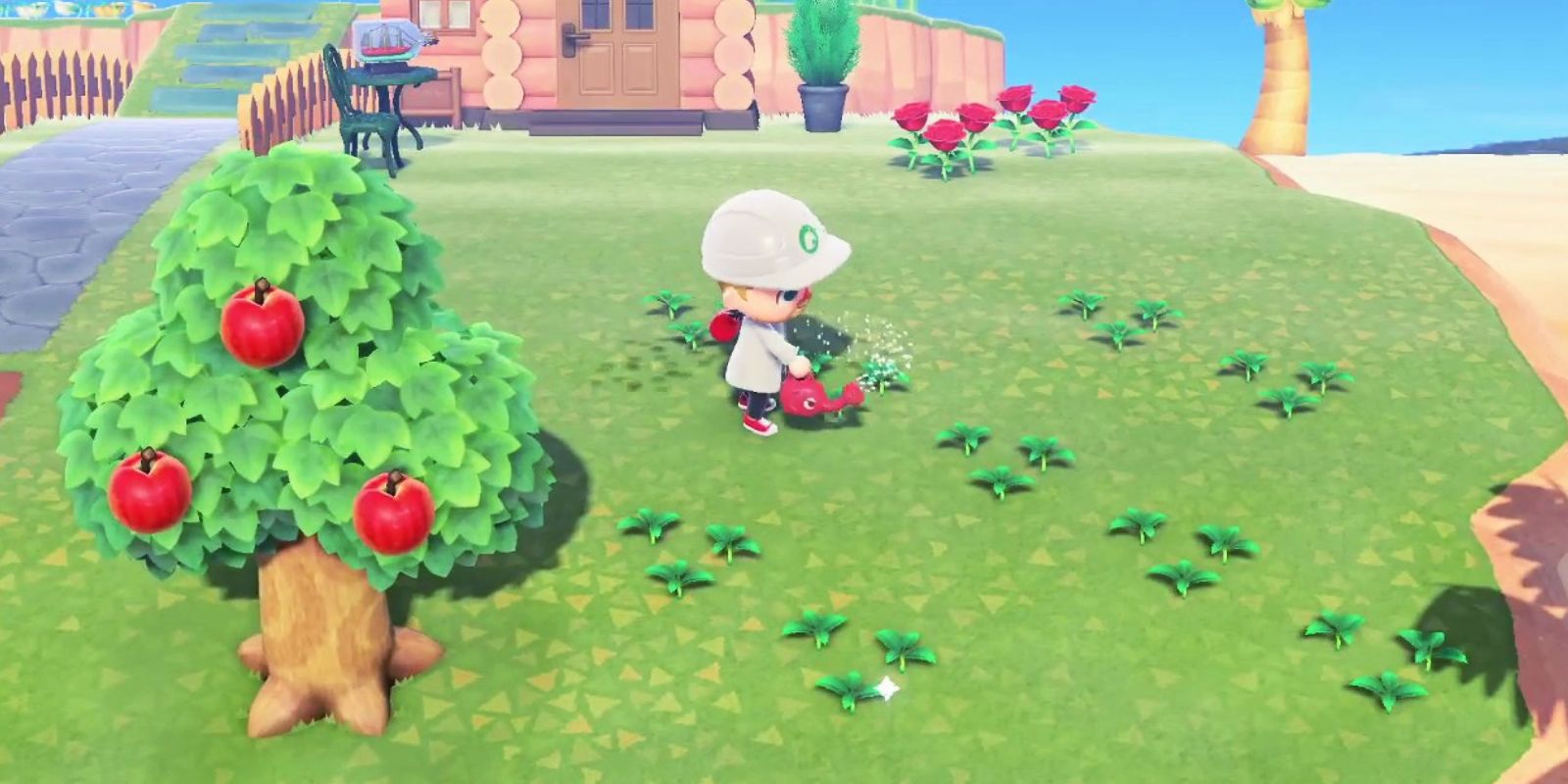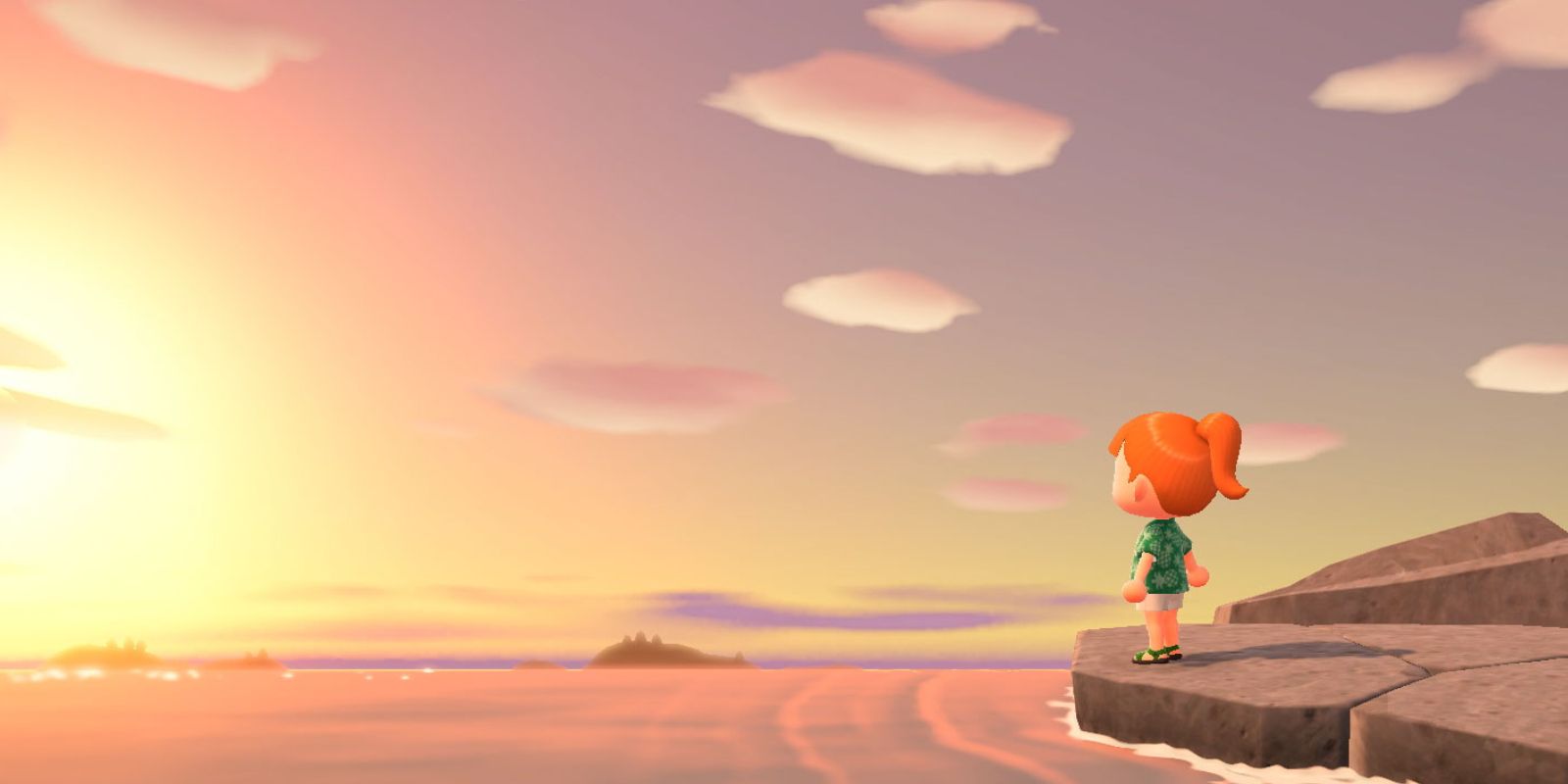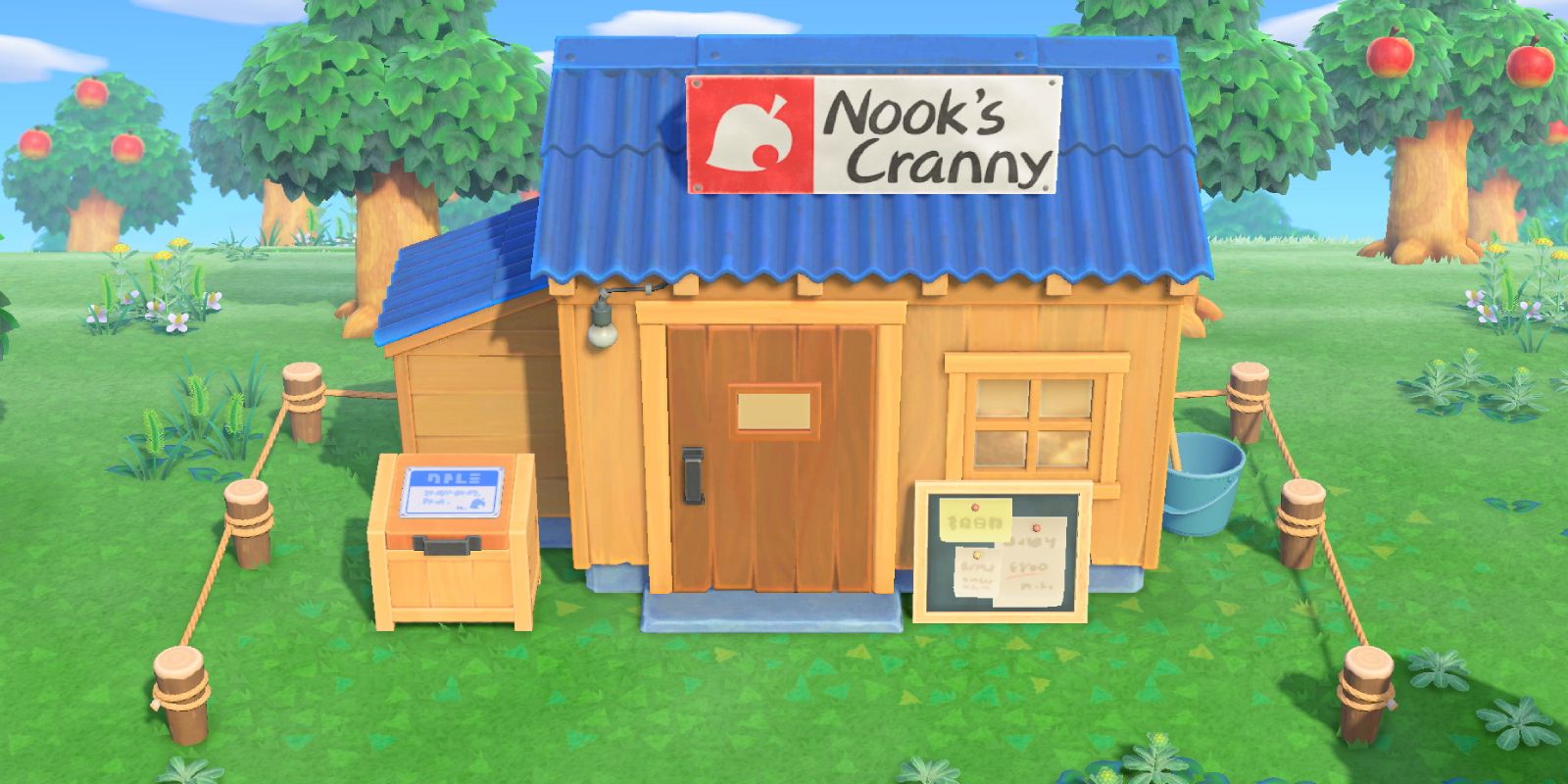
The long-awaited 2.0 update to Animal Crossing: New Horizons was recently revealed during October's Animal Crossing Direct, and there are some big changes coming to the game. Among those are returning features from previous entries in the Animal Crossing series, including ordinances, which were introduced in Animal Crossing: New Leaf and allowed players to change the way the town operates, as well as the behavior of its residents. There are four ordinances in total, and each one has a different impact on the villagers and other functions of the island in New Horizons.
The Animal Crossing Direct took place on October 15th and covered not only the free 2.0 New Horizons update, but also the game's first paid DLC, Happy Home Paradise. Appearing alongside new crops, DIY recipes, hairstyles, and island tours are familiar NPCs from previous Animal Crossing games such as Brewster, Kapp'n, and Harriet. Brand new mechanics such as cooking have been introduced for the first time in the series as well, and popular fan requests like the return of gyroids and the froggy chair furniture item have been revealed. The update launches on November 5, meaning that there's not much time for players to prepare their island for all the new content and ordinances that will come into play.
In the previous Animal Crossing game, New Leaf, ordinances were part of the player's responsibility as mayor of the town. They could be enacted or changed through the Town Hall, and cost a relatively significant fee of 20,000 Bells to implement. In New Horizons, it appears that players will be able to enact ordinances by talking to Isabelle at the Resident Services building. It's unclear whether there will be a fee this time around or how much it could cost. What will likely be the same, though, is the unique effect each ordinance has on island life. At the very least, it's probable that their functions will be relatively similar to what players saw in Animal Crossing: New Leaf.

The Beautiful Island Ordinance, known instead as Beautiful Town in Animal Crossing: New Leaf, helps to keep the town from getting dirty or overgrown with time. Weeds appear far less often, and cockroaches, which typically spawn in player houses after an extended absence, won't appear at all. The ordinance impacts flowers, too; hybrids are more likely to spawn and flowers won't die even without being watered. On top of that, trash will no longer be fished out of rivers or the ocean. This could benefit any players who profit from selling rare hybrid flowers or fish.
The behavior of the island's residents also changes in accordance with the Beautiful Island Ordinance, and villagers will water flowers more frequently if it's enacted. This is a great option for players who may not be able to log onto Animal Crossing: New Horizons every day or those who grow tired of cleaning up their island after a break. It's also good for ACNH time travelers. In New Leaf, time-traveling no longer impacted the town environment at all with the Beautiful Town Ordinance in place. While it's unclear for the time being whether all of these functions will remain the same in Animal Crossing: New Horizons 2.0, players will be able to find out just how much cleaner this ordinance makes the island on November 5th when the 2.0 update releases.

The Early Bird Ordinance is one of two ordinances that alters when villagers will get up and go to bed each day. In particular, residents will wake up and shops will open much earlier, usually with a difference of around 2 to 4 hours. In Animal Crossing: New Leaf, most villagers under the Early Bird Ordinance were up by 8 A.M. or so, creating an optimal experience for players who preferred to spend their time in Animal Crossing in the early hours of the day rather than later at night.
Regardless of whether Animal Crossing: New Horizons' 2.0 update keeps these exact hours, the general principle will remain the same, giving players more time to interact with their favorite residents. What isn't clear, however, is whether the new shops being added to Harv's Island thanks to the update will operate under the ordinance or not, given they're not located on the player's island.

The Night Owl Ordinance does the opposite of the Early Bird Ordinance, altering residents' behavior so they go to sleep later and shops stay open longer. Players who tend to log onto Animal Crossing: New Horizons later at night will most benefit from this ordinance. It can be frustrating to open the game just to find that Nook's Cranny has already closed and there's little opportunity to do much in the way of island living.
In New Leaf, most villagers wouldn't go to sleep under the Night Owl Ordinance until at least around 2 in the morning, with certain personality types staying up until 6 A.M. Nookling stores also stayed open anywhere from 2 to 6 hours later than usual, and most other shops in town also had altered hours. Unfortunately, there are few other shops to visit in Animal Crossing: New Horizons, in part because most appear in the form of weekly visitors rather than regular buildings, so it's probable that Nook's Cranny will be the only shopping destination that really sees a significant change under this ordinance. What does seem guaranteed, though, is that villager behavior will change in response to its enactment.

The Bell Boom Ordinance is especially helpful for new players or those who might have a hard time earning Bells, as it increases the price that most items can be sold and bought at. It's worth noting that mortgage prices stay the same, though, meaning that players who sell a lot while the Bell Boom Ordinance is in place will have a much easier time upgrading their house. In New Leaf, this ordinance also added one extra item to Re-Tail's premium item list. In New Horizons, the equivalent of this could be adding an additional daily "hot item" to Nook's Cranny. While it's too early to know exactly what the equivalent will be, the overall goal of the ordinance will more than likely remain the same, allowing players to both buy and sell things at a higher price.
Ordinances are effectively an easy way for players to customize their Animal Crossing experience, altering island life as well as the behavior of the town's residents. While some might be more useful in certain situations than others, they're all worth trying for anyone looking to help make Animal Crossing: New Horizons more catered to their individual playstyle.
from ScreenRant - Feed https://ift.tt/3njkG6G

0 Comments